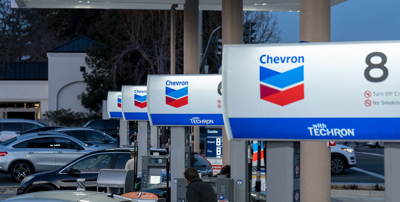
Chevron station
CHARLESTON, S.C. - A South Carolina judge says he is "singing from the same hymnal" as colleagues in other states in throwing out a lawsuit that blames companies like Chevron and Exxon for climate change.
Judge Roger Young, Sr. yesterday dismissed the case brought by the City of Charleston and private lawyers hoping for a jackpot, finding it an improper avenue to essentially regulate the international market.
Though lawyers claimed the dozens of cases nationwide are about consumer deception, Young said no, this litigation is actually about greenhouse gas emissions that are under the authority of the federal government.
He is the seventh state court judge to dismiss a case at an early stage.
"The ranks of this chorus are swelling for sound public policy reasons," Young wrote. "While the scope of the state-law claims (of consumer deception) alleged here exceeds the recognized bounds of South Carolina law, Plaintiff's theory of liability appears almost limitless.
"Under Plaintiff's theory, virtually anyone could be a plaintiff - and a defendant - in what would effectively amount to a perpetual series of lawsuits that reset after every storm."
Though the state supreme courts of Hawaii and Colorado have allowed cases there to proceed, judges in Maryland, Pennsylvania, New York, Delaware and New Jersey have put their foot down. Chevron’s lawyer, Ted Boutrous of Gibson, Dunn and Crutcher, noted the “growing chorus” of judges refusing to interject themselves in the energy market.
“States and municipalities cannot pursue climate change litigation under state laws, because such claims are precluded and preempted by federal law under clear U.S. Supreme Court precedent,” he said. “Judge Young rejected Plaintiffs’ ‘artful’ attempts to frame its claims as solely about consumer deception, holding that ‘Plaintiff cannot avoid that its claims turn on emissions.’”
To stay out of federal court, where defendants have an even stronger defense, plaintiff lawyers working on contingency fees from government officials crafted the lawsuits to make state-law claims of public nuisance and consumer deception.
The theory is that the public would not have used as many fossil fuels as it did had it known about the effects they would have on the climate. Even South Carolina's top lawyer - Republican attorney general Alan Wilson - wanted Young to dismiss Charleston's case.
Young also had to weigh President Donald Trump's executive order forbidding further climate litigation brought by cities, counties and states.
“The U.S. Constitution makes certain matters the exclusive domain of federal law for good reason," Young wrote.
"If all 50 states, let alone the tens of thousands of political subdivisions therein, were permitted to apply their own laws to such federal issues as interstate and international emissions, the result would be conflicting state standards that would be impossible for energy companies to navigate — what the U.S. Supreme Court called a ‘chaotic confrontation between sovereign states.’”
Young warned of unending litigation targeting anyone and in fact, around the time he held a hearing on the motion to dismiss, a woman in Washington filed a lawsuit over the death of her mother.
It claimed climate change caused by Big Oil heated the world on a 108-degree day, blaming Juliana Leon's hyperthermia in her car on the defendants.
In addition to Trump's disapproval of these lawsuits, Republicans in Congress are worried they are funded by other countries in an effort to interfere with the U.S. energy market.
One target of Republican wrath is the U.S. Energy Foundation, a spinoff of a Chinese energy foundation that has distributed more than $780 million to hundreds of left-leaning environmental groups since 2020. Grants disclosed in the foundation’s most recent federal financial filing include $20 million to the Fund for a Better Future, which in turn funds advocacy groups like Priorities USA and Climate Power.








